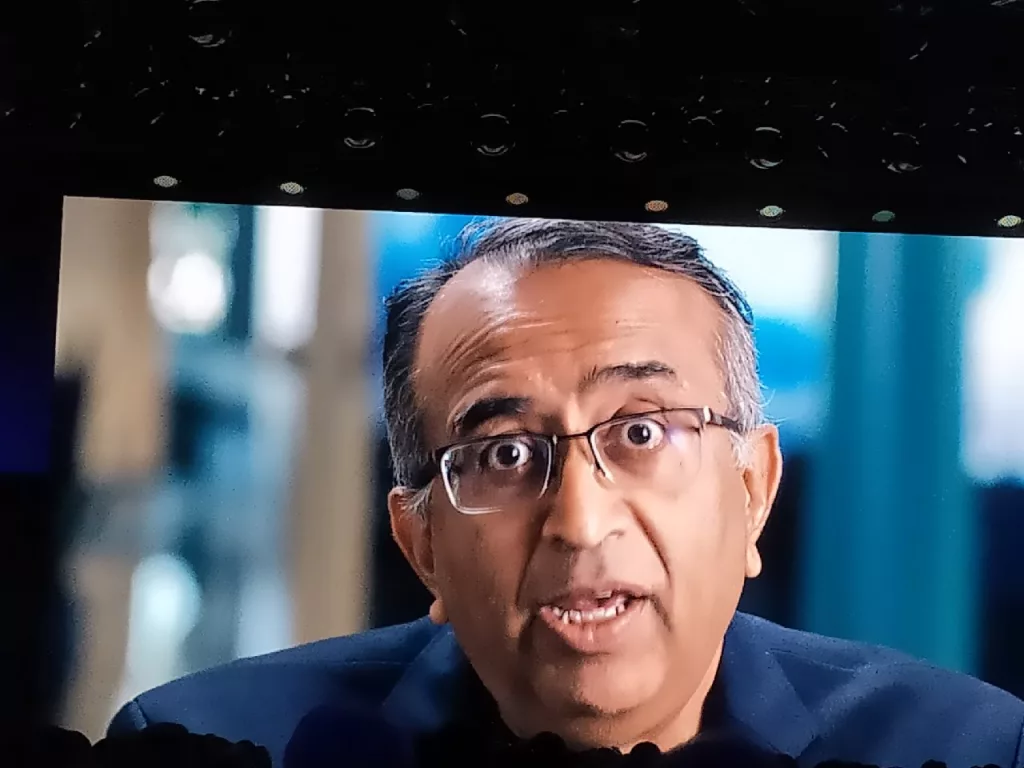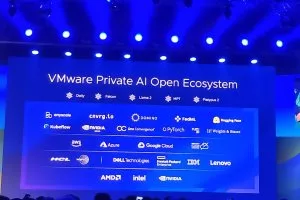A key provider to the telco and cloud space made some key industry announcements last week. Business technology journalist Antony Savvas attended VMware Explore in Las Vegas last week to measure their impact.
VMware’s Explore customer and partner event remains a major opportunity to see how the IT and communications industry can work together. VMware dedicates itself to an open ecosystem involving most of the major players, and even though the Explore events around the world are its own, they operate like international general IT technology shows. And there aren’t many of these left.

The Las Vegas event attracted over 10,000 attendees, which was more than last year’s San Francisco happening. That level of support is not at pre-pandemic numbers, but as the importance of multi-cloud and edge networking environments increases, which are among the sweet spots of Explore, the importance of these conferences should be expected to grow.
The edge
“Enterprises and service providers alike are looking to the edge as the next frontier for digital transformation,” says VMware. This was reflected in some key VMware announcements at the show.
The company points out that most edge deployments today are proprietary integrations of custom hardware and software. But they are giving way to a new software-defined edge that is intelligent, programmable, and scalable.

New VMware edge orchestration capabilities to control and manage multiple edge services at scale; a new retail edge industry solution to better support customer engagement, loss prevention, and point-of-sale transformation; and a managed connectivity service enabling wireless service providers to deliver private 4G/5G services to enterprises were unveiled at the show.
“The growing demand for edge computing across industries is driving the need for automation and orchestration,” says Sanjay Uppal, senior vice president and general manager of service provider and edge at VMware. The VMware Edge Cloud Orchestrator is a new tool that extends the firm’s network automation capabilities to help organisations “more securely and cost-effectively” install, configure, operate, and maintain their edge deployments.
Complexity
The challenge in achieving the goal of leveraging the edge effectively, says VMware, is the complexity across people, processes, and technology. This includes a lack of reliable connectivity with a central data centre or cloud location; a lack of IT expertise on-site at disparate sites; and the need to scale deployments to thousands of sites, often across domains and geographic boundaries.

VMware Edge Cloud Orchestrator provides unified management for VMware SASE (secure access service edge) and the VMware Edge Compute Stack, bridging the gap between edge networking and edge compute. This helps customers plan, deploy, run, visualise, and manage their edge environments in a “friction-free manner”, allowing them to run edge-native applications focused on business outcomes using a single console, to manage edge compute infrastructure, networking, and security.
“Audi wants to take factory automation to the next level and benefit from a scalable edge infrastructure at its factories worldwide,” says Jorg Spindler, global head of manufacturing engineering at Audi. “Our Edge Cloud 4 Production will be the key component of this digital transformation, replacing individual PCs and hardware on the shop floor. Ultimately, it will increase factory uptime, agility, and the speed of rolling out new applications and tools across the production line.”
VMware Edge Cloud Orchestrator, he says, will offer a scalable way for Audi to operate a distributed edge infrastructure, manage resources more efficiently, and lower its operations costs.
Private mobile

The supplier also unveiled VMware Private Mobile Network, a managed connectivity service to accelerate edge digital transformation. It is designed to help wireless service providers remove the complexity associated with private mobile networks and enable enterprises to focus on their strategic business outcomes. Built on VMware Edge Compute Stack, VMware Private Mobile Network is integrated into existing IT management platforms to deliver “rapid deployment” and “effortless management and orchestration”.
Betacom, Boingo Wireless, and Federated Wireless are the initial beta wireless service provider partners for the offering. “We’re collaborating with VMware to enhance our managed private 5G networks that connect mobile and IoT devices at airports, stadiums and large venues,” says Derek Peterson, chief technology officer at Boingo. “VMware’s Private Mobile Network simplifies network integration and management, helping us accelerate deployments.”
Artificial intelligence

As the communications industry geta to grips with the issues and the opportunities around artificial intelligence, VMware also launched an industry foundation to help meet the challenge.
It took the wraps of its “Private AI” concept, “an architectural approach that unlocks the business gains from AI with the practical privacy and compliance needs of an organisation”.
As part of the initiative, VMware introduced VMware Private AI Foundation with Nvidia, to ready enterprises that run VMware’s cloud infrastructure for the “next era of generative AI”.
“With VMware Private AI, we are empowering our customers to tap into their trusted data so they can build and run AI models quickly and more securely in their multi-cloud environment,” says Raghu Raghuram, CEO of VMware.
The Nvidia offering comprises a set of integrated AI tools, to enable firms to run proven models trained on their private data in a “cost-efficient manner”, and will enable these systems to be deployed in data centres, on leading public clouds, and at the edge.

“Our collaboration will give customers the full-stack software and computing they need to unlock the potential of generative AI using custom applications built with their own data,” says Jensen Huang, CEO of Nvidia.
Nvidia will be offering its own GPUs and software to help them do it. The idea is to support generative AI from customisation to deployment with the creation of “AI clouds”.
VMware’s Private AI effort is also being supported by Dell Technologies, HPE and Lenovo, along with other vendors, and global systems integrators and open source developers.
Alliances like these are key to making sure AI at the edge works efficiently for communications service providers (CSPs).
The author is Antony Savvas, a global freelance business technology journalist.
Comment on this article below or via Twitter: @VanillaPlus OR @jcvplus






